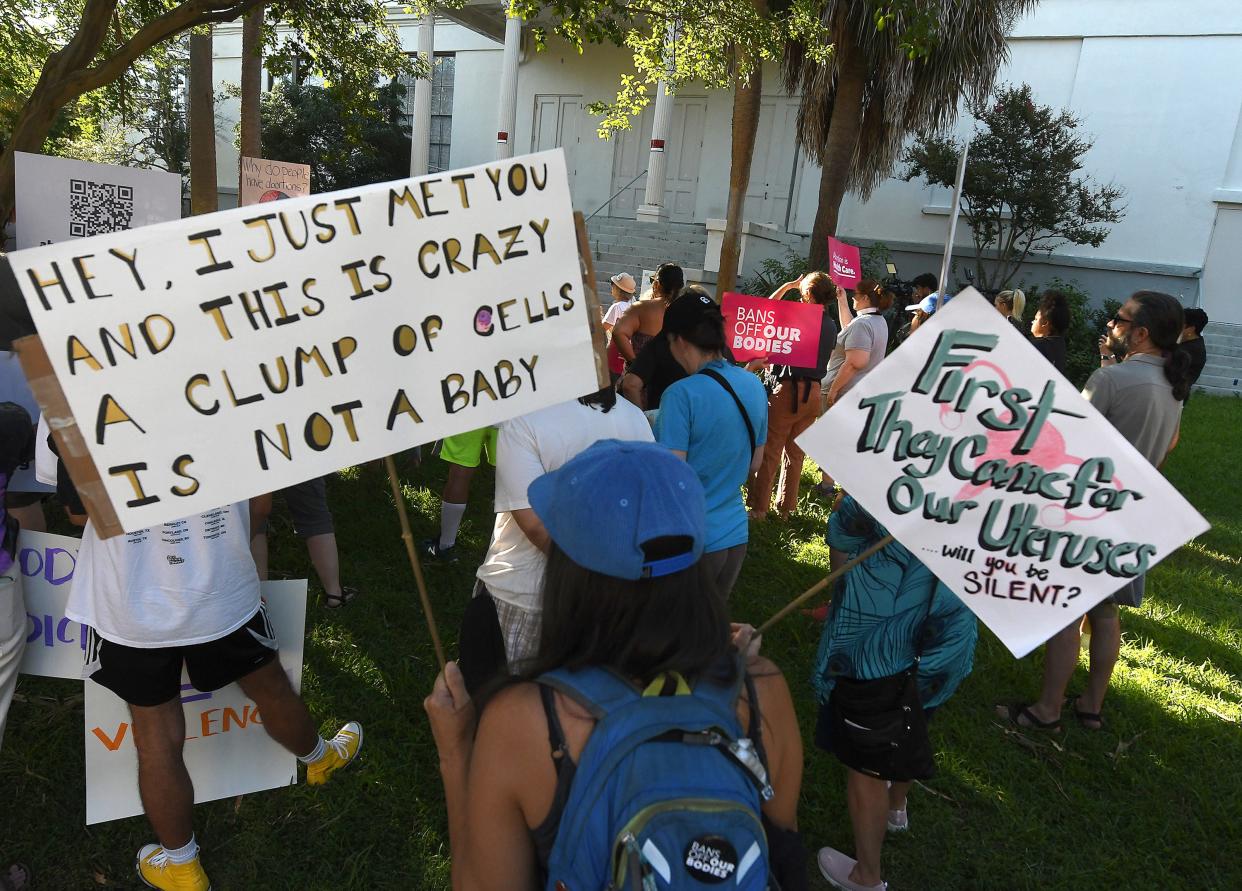North Carolina abortion access limited for women in rural, low-income communities

With Roe v. Wade now overturned, women in rural communities could face additional healthcare challenges to those already existing in those communities.
While abortion is legal in North Carolina, most residents do not live in a county with a clinic that performs the procedure. For many residents, access to the nearest clinic is hours away.
North Carolina has 14 clinics that perform abortions across the state, including four in the Raleigh area, three in the Charlotte area, two in Fayetteville and Winston-Salem and one in Asheville, Greensboro and Wilmington.
Because the facilities are located in only 9 different counties, "91% of counties in our state are without a clinic," according to abortion rights advocates Pro-Choice North Carolina.
Fake clinics are a concern
Abortion rights advocates warn such anti-abortion fake clinics "engage in manipulative tactics to prevent people from making informed choices about their reproductive and sexual health" often providing women with medical misinformation.
With signs or billboards boasting slogans like "Pregnant? Scared? We can help" these facilities provide free pregnancy testing and counseling with strong underlying anti-abortion agendas, according to Pro-Choice North Carolina, which adds that these places "will do anything to scare people away from accessing their right to abortion."
Abortion access in rural communities
Rural communities are home to around a quarter of women in the US.
Despite that, they significantly lack proper health care, especially health care for women, according to the American College of Obstetricians and Gynecologists.
The further a woman lives from a metropolitan area, the less likely she is to get prenatal care in the first trimester of pregnancy, and women living in rural communities are slightly more likely to experience complications in pregnancy.
Less than half of women living in rural communities are within 30 minutes of a healthcare provider, and most are at least an hour away. That means delaying accessing health care due to distance and cost, according to the American College of Obstetricians and Gynecologists.
Anti-abortion movement: With no Roe, what's next for the anti-abortion movement in North Carolina?
Photos: Abortion rights rally in Wilmington
From sadness to joy: Abortion ruling draws emotional responses from both sides in Wilmington
Sex ed in NC: State law promotes abstinence, heterosexual relationships
A majority of abortions were performed on rural women
In North Carolina, 23,495 abortions were performed in 2019 among women between the ages of 18 and 44, according to state data.
About half of people who received abortions were in their 20s, and most were African American or white. Most were unmarried and around half had received an abortion prior. More than half already had at least one child.
But less than half of the abortions performed in North Carolina were among women living in the counties where there are abortion clinics. That means more than half of abortions performed in North Carolina were sought from outside its largest metropolitan areas. That’s representative of the population of women in North Carolina: around 53% live within the 91 counties in the state that don’t have abortion clinics.
Women in those areas are also less likely to be able to access or afford morning-after pills like Plan B, which cost around $50 for a single pill and can often be found at grocery stores and pharmacies.
For women living in rural communities, abortion often isn't talked about. When it is, it's to say that abortion is wrong, a Robeson County woman told the Fayetteville Observer.
In an interview with the Observer, a Lumbee woman named Concetta said in her Robeson County community, abortion simply isn't talked about.
Read Concetta's story: 'Women are the backbone': This Lumbee woman is raising a new generation of matriarchs
"We don’t talk about why women have abortions. We don’t talk about emotional support for women who do decide to terminate a pregnancy," she said, in part. "We don’t talk about any of that here, in my county. The only time we talk about abortion is if we’re condemning someone for having an abortion without knowing their story."
Impact of restrictions
North Carolina also imposes numerous restrictions on abortion that are more likely to impact low-income women.
Abortion clinics in the state must be certified through a licensure process not required of other health care providers. The requirements imposed are seen as making it more difficult to receive certification, abortion-rights activists say, from physical components like nourishment stations, air temperature requirements, staffing mandates and more.
Women on health insurance plans offered through the Affordable Care Act cannot receive an abortion unless there are life-threatening circumstances, and the same applies to women on health care plans for public employees.
In North Carolina, a woman seeking an abortion must also go through state-directed counseling and a required 72-hour waiting period before the procedure is provided.
Every state requires at least some amount of abortion counseling for women before the procedure. Many states then require at least 24 hours to elapse between counseling and the operation. North Carolina is one of seven states that requires a 72-hour wait, according to the Guttmacher Institute for sexual and reproductive health.
Medication abortion cannot be administered via telemedicine, forcing women to be present at a clinic even to get a prescription. Patients must undergo an ultrasound, and abortions cannot be performed at or after viability, generally around 23 or 24 weeks, unless the pregnancy may put a life in danger or cause severely compromised health.
Reporter Sydney Hoover can be reached at 910-343-2339 or shoover@gannett.com.
This article originally appeared on Wilmington StarNews: Abortion access slim for NC women in rural, low-income communities

